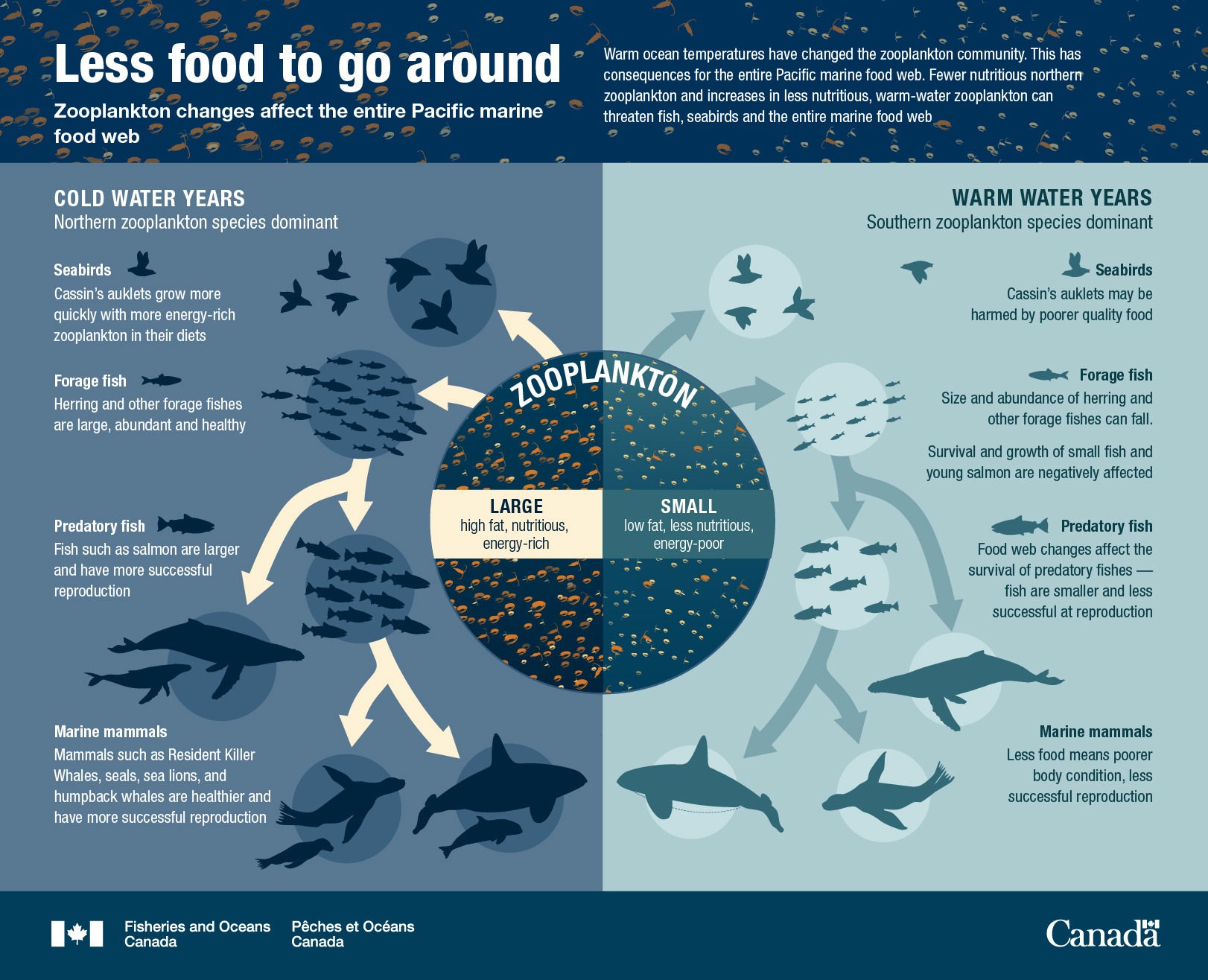Canada’s Oceans Now: Pacific Ecosystems, 2021 - Less food to go around

Description: Canada’s Oceans Now: Pacific Ecosystems, 2021 - Less food to go around
An infographic showing two simplified Pacific marine food webs. At left the food web shows cold water years where large high fat zooplankton are at the centre of the web. Species that feed on the zooplankton are shown with arrows at left. The large zooplankton feed a healthy food web including seabirds, forage fish, predatory fish and marine mammals. The food web at right shows warm water years where small low fat zooplankton dominate the centre of the food web. At right arrows link to similar levels of predators that are not as healthy due to the different zooplankton feeding them.
Less food to go around
Zooplankton changes affect the entire Pacific marine food web.
Warm ocean temperatures have changed the zooplankton community. This has consequences for the entire Pacific marine food web. Fewer nutritious northern zooplankton and increases in less nutritious, warm-water zooplankton can threaten fish, seabirds and the entire marine food web.
Zooplankton
- Large
- high fat, nutritious, energy-rich
- Small
- Small, low fat, less nutritious, energy-poor
Cold water years
- Northern zooplankton species dominant
Seabirds
- Cassin's auklets grow more quickly with more energy-rich zooplankton in their diets.
Forage fish
- Herring and other forage fishes are large, abundant and healthy.
Predatory fish
- Fish such as salmon are larger and have more successful reproduction.
Marine mammals
- Mammals such as Resident Killer Whales, seals, sea lions, and humpback whales are healthier and have more successful reproduction.
Warm water years
- Southern zooplankton species dominant
Seabirds
- Cassin's auklets may be harmed by poorer quality food.
Forage fish
- Size and abundance of herring and other forage fishes can fall.
- Survival and growth of small fish and young salmon are negatively affected.
Predatory fish
- Food web changes affect the survival of predatory fishes — fish are smaller and less successful at reproduction.
Marine mammals
- Less food means poorer body condition, less successful reproduction.
Related links
- Date modified: